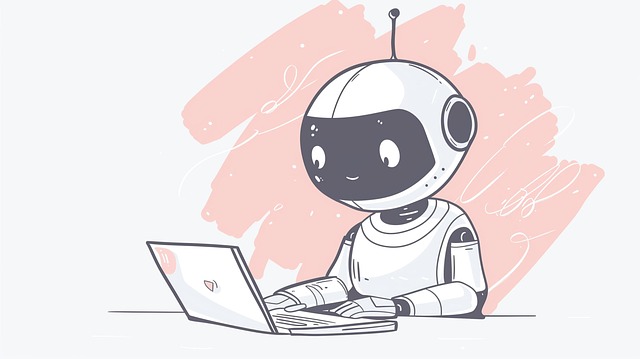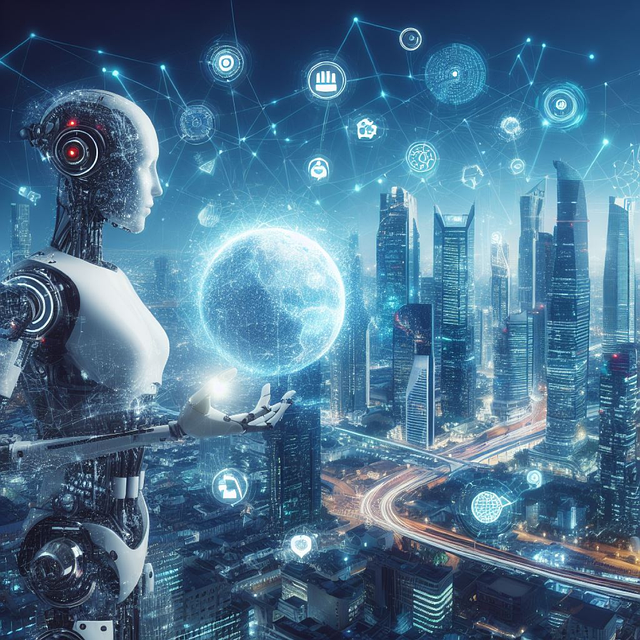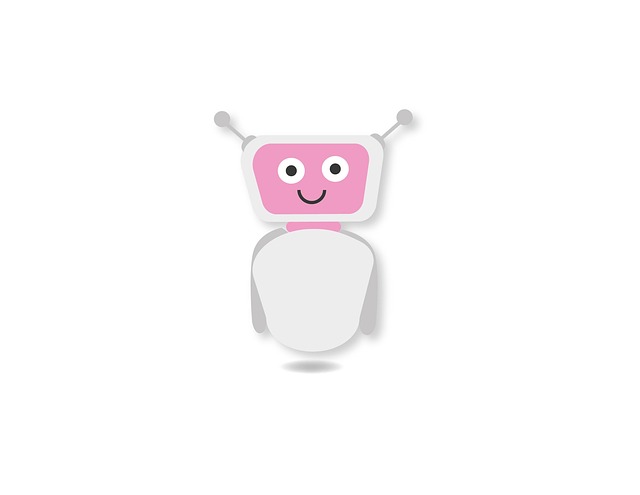AI chatbots are advanced tools using NLP and machine learning algorithms to engage in human-like conversations, adapting from vast data inputs. They can be rule-based or ML-powered, offering 24/7 support for diverse tasks across sectors like retail, healthcare, and education. While revolutionizing user experiences globally, AI chatbots also face challenges including bias, privacy concerns, and transparency issues. Future developments aim to enhance their intuitive abilities, natural language processing, and emotional intelligence for more engaging interactions.
“AI chatbots are transforming the way we interact with technology, offering human-like conversations that span diverse applications. This comprehensive guide delves into the fundamentals of AI chatbots, exploring their inner workings and the technologies behind them. We’ll navigate the benefits they bring to various sectors, from customer service to healthcare, while addressing ethical concerns.
Furthermore, this article traces the evolution of AI chatbot interaction and glimpses into a future where these digital assistants could redefine our daily communications.”
- Understanding AI Chatbots: A Basic Breakdown
- How Do AI Chatbots Work?
- Types of AI Chatbot Technologies
- Benefits and Applications in Different Sectors
- Challenges and Ethical Considerations
- The Future of AI Chatbot Interaction
Understanding AI Chatbots: A Basic Breakdown

AI chatbots are a type of artificial intelligence designed to engage in natural language conversations with users, mimicking human-like interactions. They operate through sophisticated algorithms and machine learning models that enable them to understand and respond to a wide range of queries. These chatbots utilize vast amounts of data to learn patterns, gain knowledge, and improve their performance over time.
The basic breakdown reveals that AI chatbots work by processing user inputs, analyzing context, and generating relevant responses. They can assist with various tasks, from answering simple questions to providing in-depth support. The key lies in their ability to adapt, learn, and evolve based on user interactions, making them increasingly valuable in customer service, education, healthcare, and more.
How Do AI Chatbots Work?

AI chatbots work by leveraging advanced natural language processing (NLP) and machine learning algorithms to understand and respond to user queries. These algorithms enable chatbots to analyze vast amounts of text data, learn from human interactions, and generate contextually relevant responses in real time. When a user sends a message, the chatbot processes it using NLP techniques, breaking down the text into components like keywords, sentiment, and intent.
Based on this analysis, the AI chatbot draws upon its training data and pre-programmed rules to formulate an appropriate response. This dynamic interaction allows chatbots to handle a wide range of tasks, from answering frequently asked questions to providing personalized recommendations, all while maintaining a conversational flow that feels natural and human-like.
Types of AI Chatbot Technologies

AI chatbots can be broadly categorized based on their technological underpinnings and capabilities. One primary distinction lies in the type of processing they employ: rule-based or machine learning (ML). Rule-based AI chatbots operate according to a set of predefined rules and scripts, where developers explicitly program responses to specific user inputs. This approach is straightforward for simple queries but lacks adaptability.
In contrast, ML-powered AI chatbots leverage algorithms to learn from vast datasets, enabling them to understand natural language and generate contextually appropriate responses. These chatbots can evolve over time as they process more interactions, improving accuracy and relevance. Machine learning models, such as recurrent neural networks (RNNs) and transformer architectures like BERT, drive this capability, allowing AI chatbots to handle complex tasks and deliver more human-like experiences.
Benefits and Applications in Different Sectors

AI chatbots are transforming industries across the globe, offering a myriad of benefits that improve efficiency and enhance user experiences. One of their key strengths lies in their ability to handle customer inquiries and support 24/7, reducing response times and workload for human agents. This is particularly advantageous for sectors like retail, banking, and healthcare, where customers demand immediate assistance.
Furthermore, AI chatbots can process vast amounts of data, enabling personalized interactions and tailored recommendations. In education, they facilitate interactive learning experiences; in healthcare, they assist with symptom checking and medical research; while in entertainment, they power engaging storytelling and content generation. The versatility and adaptability of AI chatbots make them a valuable asset for any organization seeking to stay competitive in today’s digital landscape.
Challenges and Ethical Considerations

AI chatbots, while offering immense potential, face several challenges and ethical considerations that require careful attention. One primary concern is bias, which can inadvertently be introduced into the chatbot’s responses due to the data it’s trained on. If the training data contains human biases or stereotypes, the AI chatbot may reflect and perpetuate these, leading to unfair or discriminatory outcomes.
Additionally, privacy and data security are significant issues. As AI chatbots often process sensitive user information, ensuring the protection of this data is crucial. Developers must implement robust measures to safeguard personal details from unauthorized access or misuse. Furthermore, transparency in how AI chatbots operate is essential for building trust with users. People have a right to understand when and how their interactions with a chatbot are being influenced by automated systems, raising questions about consent and the boundaries of human-machine interaction.
The Future of AI Chatbot Interaction

The future of AI chatbot interaction looks set to be even more immersive and intuitive. As technology advances, these virtual assistants will become increasingly sophisticated, capable of understanding complex human emotions and nuances. This development promises to transform how we interact with technology in our daily lives. Imagine having a chatbot companion who can engage in meaningful conversations, offer personalized recommendations, and assist with tasks ranging from scheduling appointments to providing emotional support.
AI chatbots are poised to revolutionize customer service by offering 24/7 assistance, instant responses, and customized experiences. They can adapt to individual user preferences, making interactions more efficient and enjoyable. Moreover, advancements in natural language processing will enable chatbots to generate human-like text, making conversations feel more natural and engaging. This evolution is not just about convenience; it’s about fostering deeper connections between users and technology.
AI chatbots have evolved from simple rule-based systems to advanced, conversational agents capable of understanding and generating human language. As technology progresses, these virtual assistants will continue to transform various sectors, offering enhanced customer service, improved efficiency, and unprecedented accessibility. However, it is crucial to address ethical considerations and ensure responsible development to harness the full potential of AI chatbots while mitigating their challenges. The future of AI chatbot interaction promises a dynamic and inclusive digital landscape, where technology serves humanity in unprecedented ways.
